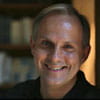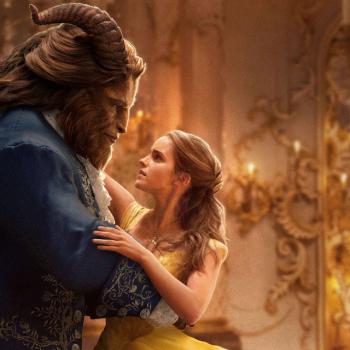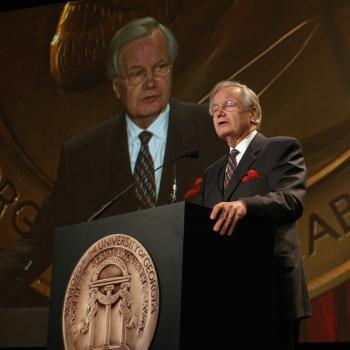The media-world is the shelter where the vast majority of those of us who live in the West dwell and from which we draw the material out of which we make sense of our lives. ~ Kelton Cobb, The Blackwell Guide to Theology and Popular Culture
 When we look at the way people understand the world, we have to pay attention to more than news reports, speeches, policy reports, and scholarly treatises. Most people, honestly, don't make their meaning in those ways. Many people believe in things that are demonstrably not facts (i.e., Saddam Hussein's involvement in 9/11, President Obama's Muslim faith) and a huge number of people seem to learn what they "know" about the world from media sources such as Glenn Beck or Jon Stewart (or, like the U.S. Congress, be influenced by them).
When we look at the way people understand the world, we have to pay attention to more than news reports, speeches, policy reports, and scholarly treatises. Most people, honestly, don't make their meaning in those ways. Many people believe in things that are demonstrably not facts (i.e., Saddam Hussein's involvement in 9/11, President Obama's Muslim faith) and a huge number of people seem to learn what they "know" about the world from media sources such as Glenn Beck or Jon Stewart (or, like the U.S. Congress, be influenced by them).
All this demonstrates that, as Kelton Cobb argues, more of us make sense of the world through the media than through reasoned study and debate, which makes calling attention to exemplary (good or bad) media an important task. 2010 gave us movies, television shows, and other media that could help us in a positive way to make sense of the complex and challenging world we occupy. Here are some of the pop culture artifacts from 2010 carrying powerful lessons about religion and politics.
Dr. Who (Season Five) (Steven Moffat, executive producer)
Knowing my interest in religion and culture, Rowan Williams had been urging me for some years to watch the new Dr. Who, relaunched in 2005 and Britain's most popular TV import in the United States. This summer in Wales I began watching the show with British fans, and discovered that this season (and, yes, Dr. Williams, the four previous seasons, as well as the Dr. Who spinoff Torchwood) does wrestle mightily with the ethical questions of the post 9/11 world and shows us again how science fiction can be a powerful vehicle for allegory. What, for example, should we do to preserve our safety? Episodes Two and Three argue that torture or a pragmatic embrace of any defense method demean us and defeat our purposes. At the heart of all this stands Matt Smith's energetic Doctor, a new incarnation of a wise and ancient character who has seen the best and worst of which humankind is capable.
The Green Zone (dir. Paul Greenglass)
While some critics (including this one) thought it might have been too heavy-handed in its dramatic indictment of the failures of intelligence that led us into the Iraq War, The Green Zone does some things brilliantly. In addition to the clear denunciation of the Iraq War (which now, seven years later, I think we can and should hear from popular media), we have the character of Freddie (Khalid Abdalla), an Iraqi collaborator with the U.S. forces who honestly wants our help to make his nation a better place—and whom the American characters fail utterly. I myself understood our failure in Iraq more powerfully through the life of this one representative Iraqi than from all the news reports I've seen and read. Andrew O'Hagan in The Evening Standard called The Green Zone a great war film, and lauded Paul Greenglass's "ethical curiosity," also evident in the Bourne films. I agree that the ethical dimension makes this stylish and watchable film important; so too does the presence of Matt Damon, lending his star-weight again to a challenging film. What fine and interesting roles Damon has chosen in recent years!
Glee (Ryan Murphy, executive producer)
While I wouldn't characterize myself as a Gleek, I am grateful for this show, which takes the ultimate social experiment, high school, and re-envisions it as a place where those with a great store of social currency (athletes, cheerleaders) and those with no social currency (the differently abled, gay, or minority students) can gather together around a common purpose. It's a vision of true ecclesia, and, for that matter, of the Kingdom of God. Of course, there are those who want to preserve the homogeneous social order, but even the villain of this show is capable of humanity and even nobility (an important reminder). Glee is not a Christian show, thank God, but it does offer truly Christian sentiments about how we might live in a diverse and loving community. Oh, and did I mention that there will be music and dancing at the revolution?





